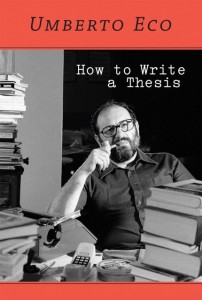 Umberto Eco died yesterday (Friday) at the age of 84. I’ve written about his work on occasion over the years, including something on his analysis of the comic strip Peanuts, That’s not online. (My piece, that is.) As for Eco’s commentary on Charles Schultz’s work, it was published in Italian in 1963, and now available on the New York Review of Books site. It’s too good not to quote:
Umberto Eco died yesterday (Friday) at the age of 84. I’ve written about his work on occasion over the years, including something on his analysis of the comic strip Peanuts, That’s not online. (My piece, that is.) As for Eco’s commentary on Charles Schultz’s work, it was published in Italian in 1963, and now available on the New York Review of Books site. It’s too good not to quote:
The poetry of these children arises from the fact that we find in them all the problems, all the sufferings of the adults, who remain offstage. These children affect us because in a certain sense they are monsters: they are the monstrous infantile reductions of all the neuroses of a modern citizen of industrial civilization.
They affect us because we realize that if they are monsters it is because we, the adults, have made them so. In them we find everything: Freud, mass culture, digest culture, frustrated struggle for success, craving for affection, loneliness, passive acquiescence, and neurotic protest. But all these elements do not blossom directly, as we know them, from the mouths of a group of children: they are conceived and spoken after passing through the filter of innocence. Schulz’s children are not a sly instrument to handle our adult problems: they experience these problems according to a childish psychology, and for this very reason they seem to us touching and hopeless, as if we were suddenly aware that our ills have polluted everything, at the root.
Last year I wrote about Eco’s guide to researching and preparing a thesis (long a best-seller in Europe) and in 2013 discussed Eco’s thoughts on religion in a piece that also addressed Habermas’s recent engagement with questions of faith. Both articles appeared in my weekly column for Inside Higher Ed, more recent editions of which may be found here.

Leave a Reply